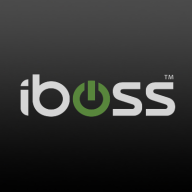


Okta Workforce Identity and Zscaler Zero Trust Exchange Platform are prominent competitors in the identity and access management category. Based on feature offerings and user experience, Okta seems to have the upper hand due to its advanced provisioning capabilities and ease of integration.
Features: Okta Workforce Identity offers sophisticated user and app management with advanced provisioning and de-provisioning capabilities. It supports a wide array of MFA options and integrates seamlessly with Active Directory, making it versatile across different platforms and device types. Zscaler Zero Trust Exchange Platform shines in providing seamless VPN-like connectivity with its strong DLP features, secure browser experiences, and the ability to bypass gateway security challenges effectively.
Room for Improvement: Okta Workforce Identity requires enhancements in reporting, lifecycle management, and third-party integrations. Its pricing can be prohibitive for small to medium businesses and lacks a hybrid deployment model. Zscaler’s areas for improvement include enhancing its DLP capabilities for web traffic, improving its user interface, and security notifications. The pricing structure is also considered high, especially in a multi-tenant environment, which may not appeal as much as single-tenant solutions.
Ease of Deployment and Customer Service: Both Okta Workforce Identity and Zscaler support public, private, and hybrid cloud deployments. Okta is recognized for its easy deployment, whereas Zscaler's seamless integration is offset by some reports of latency issues. Customer service for Okta is viewed as mixed, with some complaints about slow response, while Zscaler is acknowledged for efficient inquiry handling and solid support.
Pricing and ROI: Okta Workforce Identity is viewed as high-priced for smaller enterprises but offers good pricing for larger companies due to its centralized security capabilities, which enhance ROI. Zscaler similarly has a higher cost, particularly with the gateway aspect, yet offers scalability with user count. It provides robust integrations that justify the cost in larger-scale deployments, contributing to acknowledged ROI through security improvements and operational efficiency gains.
| Product | Market Share (%) |
|---|---|
| Zscaler Zero Trust Exchange Platform | 17.4% |
| Okta Workforce Identity | 1.9% |
| iboss | 2.4% |
| Other | 78.30000000000001% |



| Company Size | Count |
|---|---|
| Small Business | 6 |
| Midsize Enterprise | 6 |
| Large Enterprise | 5 |
| Company Size | Count |
|---|---|
| Small Business | 30 |
| Midsize Enterprise | 16 |
| Large Enterprise | 32 |
| Company Size | Count |
|---|---|
| Small Business | 16 |
| Midsize Enterprise | 11 |
| Large Enterprise | 41 |
Iboss offers a comprehensive cloud-based security platform valued for its scalability and autonomous features, ensuring robust security with easy deployment and management capabilities.
Renowned for its robust security architecture, Iboss integrates seamlessly within diverse networks, delivering efficient granular filtering and advanced content categorization. Its single pane of glass console provides ease of management, allowing rapid scalability suitable for rapidly deploying environments. Operates in BYOD setups due to inline filtering without device installation. Integration with cloud-based applications enhances user control, and features like SASE, SSL inspection, and ChatGPT risk protection stand as highlights. Despite its strengths, users have pointed out areas for enhancement like direct navigation in reports, SSL decryption, and better cloud integration while having room to improve data loss prevention.
What are the most important features of Iboss?The usage of Iboss spans educational institutions, specifically K-12, to enforce internet policies, protect data, and support remote work environments. It provides web filtering and security frameworks to ensure safe browsing. Its platform-as-a-service model offers flexibility for both cloud-based and on-premises requirements, integrating seamlessly to deliver enhanced security features suitable for various deployment needs including zero trust, CASB, and network security for work-from-home setups.
Okta Workforce Identity is a comprehensive identity and access management (IAM) solution designed to enhance security and streamline user experiences for businesses of all sizes. As a cloud-based platform, it offers a suite of tools that simplify user authentication, authorization, and management across a variety of applications and services.
Core Features
PeerSpot users often praise Okta Workforce Identity for its ease of use and robust security features. IT professionals appreciate the streamlined integration with numerous applications and the flexibility in configuring access policies. Business executives value the enhanced security posture and the ability to enforce compliance across their digital assets.
For IT professionals, Okta Workforce Identity offers a scalable and efficient solution to manage user identities and access rights. The ability to automate routine tasks like user provisioning and deactivation significantly reduces administrative overhead, allowing IT teams to focus on more strategic initiatives. Furthermore, the platform's comprehensive reporting capabilities aid in monitoring and auditing access, which is critical for maintaining security and compliance.
Business executives will find that Okta Workforce Identity aligns with broader organizational goals of operational efficiency and risk management. Its intuitive user experience minimizes disruptions to workforce productivity, while advanced security features like adaptive MFA help mitigate the risk of data breaches. The platform's cloud-based nature ensures scalability and agility, enabling businesses to adapt quickly to changing market conditions and workforce dynamics.
Okta Workforce Identity stands out as a versatile and secure IAM solution, adept at meeting the complex needs of modern enterprises. Its combination of user-friendly features and robust security measures makes it a top choice for organizations aiming to streamline their identity management processes while bolstering their cybersecurity defenses.
Zscaler Zero Trust Exchange enhances security with seamless cloud-based connectivity and VPN-less operation, offering integration with multiple identity providers and advanced security features, suitable for remote work environments.
Zscaler Zero Trust Exchange provides secure, adaptive connectivity without traditional VPNs, allowing organizations to replace legacy systems and bolster remote work security. The platform offers cloud-based protection, single sign-on, dynamic URL categorization, and scalable solutions. While advanced security features like DLP and threat protection enhance data protection, users may face issues with speed, connectivity, and some customization options. Integration challenges, latency due to multi-tenant hosting, reporting delays, and licensing costs require consideration. It supports secure internet access and private application security, ensuring traffic control and data compliance.
What are the key features of Zscaler Zero Trust Exchange?Zscaler Zero Trust Exchange is deployed across industries to secure remote access and enforce zero trust principles. Organizations in finance, healthcare, and technology sectors utilize it for secure internet access and visibility into cloud applications, enhancing performance and compliance in dynamic environments.
We monitor all ZTNA as a Service reviews to prevent fraudulent reviews and keep review quality high. We do not post reviews by company employees or direct competitors. We validate each review for authenticity via cross-reference with LinkedIn, and personal follow-up with the reviewer when necessary.